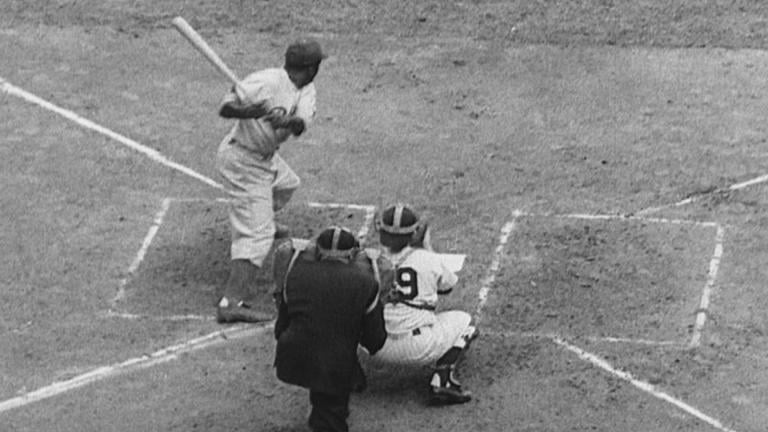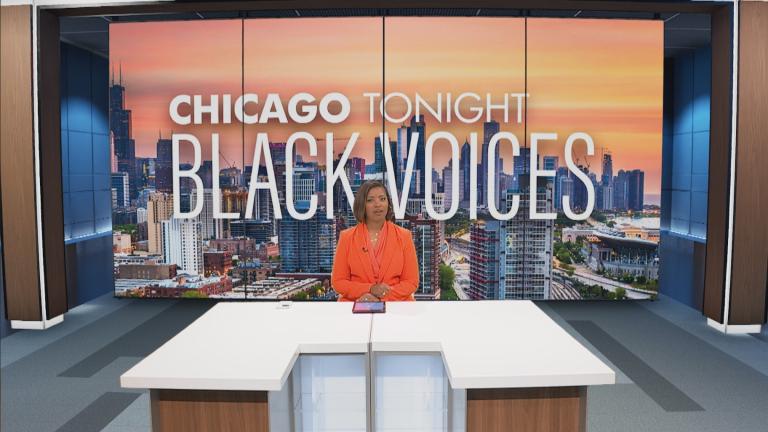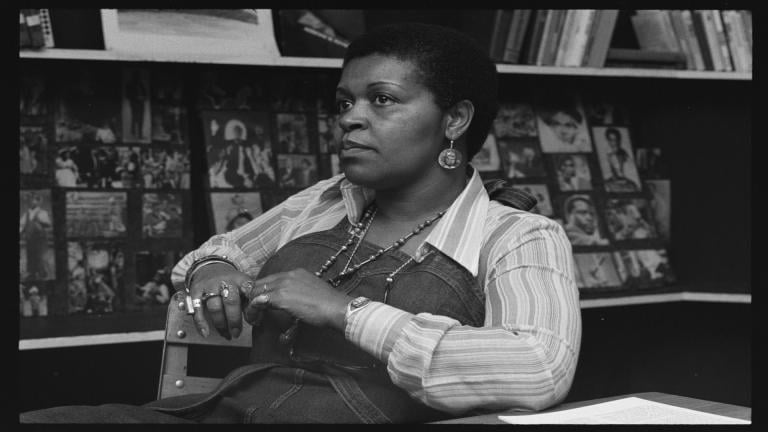Of the nearly 30,000 people serving sentences in Illinois’ prisons, there are some who proclaim their innocence.
In the last 20 years, the state has released a spate of mostly men who were wrongfully convicted, some after it was determined they were tortured into giving confessions. In fact, Illinois was faced with so many claims of torture that it created the Torture Relief and Inquiry Commission, or TIRC, in 2009.
But for one man in Stateville Correctional Center — a former Marine — there has been no relief.
When WTTW News first met Darrell Fair, he was jogging in the yard at Stateville while I was there on another story. We kept in touch, and he shared the story of how he came to prison more than 25 years ago.
“Twenty-five years, four months and nine days,” Fair said during an interview in January.
Fair and his attorneys said he was wrongfully convicted of a murder that happened in Chicago in 1998 — a man was shot to death outside a club at 104th Street and Michigan Avenue, formerly called Anywhere But Out.
“It’s complicated by the fact that Mr. Fair was undeniably present at the time that the crime was committed,” said his attorney Russell Ainsworth of the Exoneration Project, a nonprofit that provides free legal services to the potentially wrongfully convicted.
Ainsworth and his attorneys said that while Fair was at the club, he had nothing to do with the crime.
But Fair was convicted. He believes it’s because of his confession, which he said was coerced at the Chicago Police Department’s Area 2 Station at 111th Street and Ellis Avenue.
“And then this explosion happened on my lower left knee, right below the kneecap and he had kicked me,” Fair said as he described the torture he experienced that night. “After his first initial kick, he kicked maybe like seven, eight more times, but I was able to deflect some of the other blows with my free hand.”
“All the time,” Fair continued, “he has his right hand resting on his service revolver, and he’s trying to bait me in, ‘Go for it, go for it, make a move, just give me a effing reason!’”
Fair said over the course of 30 hours he was threatened and denied food, asthma medication and his right to counsel.
By the time Fair agreed to a confession, he said he was desperate.
“I was exhausted,” Fair said. “They telling me I was gone go to jail forever. ‘Hey, we need you to just say this and you can go home.’ It was just a terrifying experience. It all was a blur.”
“And I think, ‘OK, well listen: Just by me saying something, pssshh.’ I know I didn’t do anything!” Fair continued. “OK, so I’ll say it, if I can get something to eat and if it will appease these officers, lemme just go ahead and say it.”
His attorney Deb Loevy of the Exoneration Project said Fair never signed the confession that was used in court.
What’s more, the attorneys said there’s been no denial in court of the torture Fair suffered, and no witnesses ever identified him as the shooter.
Loevy even argued the case before the Illinois Supreme Court last summer.
But in a February ruling, justices made two decisions. The first: Yes, the courts must consider the totality of circumstances in a torture case.
“That’s why this opinion is very important, it’s recognizing that torture comes in many forms, not just the classic knife to throat, or threat to kill your mother,” explains Harold Krent, a professor at Chicago-Kent College of Law. “It also comes in the form of sleep deprivation, of depriving someone of medicine, not allowing him to speak to an attorney. The sort of events that go on and on and build upon each other that coerce someone’s will, and then force them to sign a confession falsely.”
But the court also upheld a lower court ruling that Fair was a “wholly incredible witness.”
“We note the circuit court specifically found petitioner was not credible in testifying about the alleged attack itself,” the ruling read.
“They agreed with the lower court because of witness credibility,” Krent said. “And this is a very fraught situation because they’re being asked to determine credibility of witnesses 25 years previously. None of the cops that were involved testified, and one of them has been involved in other acts of torture.”
Instead, judges found the assistant state’s attorney who took Fair’s unsigned confession more credible than Fair himself.
“On the other hand, the assistant state’s attorney who was there did testify after the fact, even though he wasn’t there during the torture,” Krent said. “And they, at least the majority of the court, agreed with the assistant state’s attorney and found Mr. Fair wasn’t credible because his story had changed over the years.”
Fair’s attorneys disagree with this part of the ruling.
“The fact of the matter is he’s always made the same allegations, been consistent about allegations and if he can’t remember which point this happened or that happened, that is attributable to how much time has gone by and how much trauma he endured,” Loevy argued.
In fact, the state’s own torture commission found in 2013 that Fair had a credible claim of torture.
“The state did not present anyone to rebut the claims of torture that occurred during the 30 hours of interrogation,” Ainsworth said. “Based on the unrebutted testimony from Mr. Fair, he was entitled to relief under the act. A statute that was supposed to be used to allow people who’re abused to get relief is being used against Mr. Fair where he can’t get his day in court.”
The state Supreme Court’s decision means Fair will not receive a new trial — or a chance to be exonerated and released.
“It was a gut punch. I felt deflated, hopeless, alone,” Fair said after the Supreme Court’s decision.
While maintaining his innocence, Fair has graduated from Northeastern Illinois University and is working toward his master’s degree at North Park University — all while behind bars.
He has also become quite an artist, his work even gracing the cover of Poetry magazine.
It helped him maintain hope despite his many legal setbacks.
“I don’t want to let the past define me, but I’m trying to stake the future to the best of my ability, I’m trying to embrace life for what time I have left here on this earth,” Fair said. “I’m trying to embrace humanity, trying to live. I’m looking forward and not behind.”
WTTW News reached out to the Cook County State’s Attorney’s Office on this case; the office shared no comment.
Loevy and Ainsworth are hopeful the state’s attorney’s Conviction Review Unit will examine the case. If not, a separate option they’re considering is filing a successive post-conviction petition, which can be more challenging than an initial post-conviction petition because it requires the court’s permission to be filed.
The Illinois Torture Inquiry and Relief Commission said as of March 1, there were still 414 remaining torture claims.








